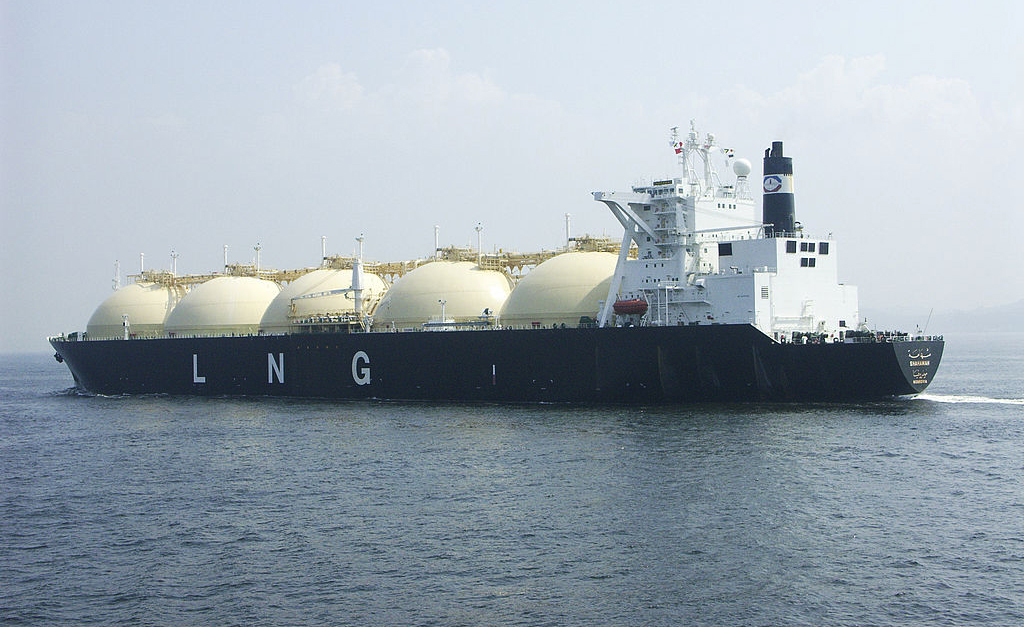This is how the US and Norway celebrate the Russian gas knockout

The Franco-German complaints about the prices charged by American LNG companies are belated and hypocritical. Here because. Sergio Giraldo's article
The first to move was the German Minister of Economy, Robert Habeck, who last week criticized "even friendly" countries that "currently get astronomical figures" by supplying their gas to the European Union. "This poses problems that need to be addressed", added the minister, urging the EU Commission to tackle the problem. The reference, not at all veiled, was to Norway and the United States, which increased their supplies to the old continent at the very high prices of today's market. The claims were followed by the French economy minister Bruno Le Maire, who speaking to the National Assembly on Tuesday said: “We cannot accept that our American partner sells us his LNG at a price four times higher than that of the which it sells to its industrial customers ". And then, he continued, "an economic weakening of Europe is not in the interest of the US and for this we must find more balanced economic relations". A coordinated double reprimand, directed at Joe Biden to contain the greed of the LNG carriers.
Berlin and Paris, as is well known, are facing serious difficulties on the energy front. Russian gas has stopped arriving in Germany for months now and we are heading for a winter of hard rationing, while the government has allocated another 200 billion to pay the bills of the Germans. In France, the nuclear power plant fleet is still half out of service due to maintenance problems, a moderate price has been imposed on energy but the country is in turmoil over the loss of the population's purchasing power, with several strikes underway. .
On Wednesday, the European Council and the Commission adopted the German requests, including the issue of renegotiations with friendly suppliers among the lines of action that the Commission will have to implement in the coming months. At the Prague meeting it was also decided to give impetus to joint purchases, sharing the European purchasing position, with the hope of making it weigh in the price negotiations. All things that Germany needs like oxygen.
Indeed, since the energy crisis began, both the United States and Norway have increased their exports to Europe. In 2021 Norway exported 81.56 billion cubic meters to the European Union via pipeline, in 2022 we are already at 89 (+ 9%). However, it is above all the United States that has increased its LNG supplies to Europe. Already in 2021, volumes had risen to 29 billion cubic meters from 22 billion in 2020 (+ 30%), but it is in 2022 that deliveries exploded, reaching 50.2 billion in the first nine months of the year (+73 % compared to the whole of 2021). An unprecedented exploit in relations between the US and Europe. At what prices has Europe bought all this gas? At market prices, obviously, high because they are very close to those recorded at the TTF. If the American gas at the Henry Hub is treated wholesale at around € 22.5 / MWh, that at the TTF is around € 158 / MWh and the LNG destined for Asia travels around a price of € 120 / MWh (prices of yesterday, ed).
The fact that Europe is willing to pay more than Asia for gas by ship is depriving other countries of American supplies, such as Pakistan and India. US exports have already increased by 15% in one year and most of the production capacity is committed to long-term contracts. In addition, the incident at one of the largest Freeport LNG export sites has further limited US capacity, and will at least be like this until next March.
However, the Franco-German complaints about the prices charged by the American liquid gas companies are very late and hypocritical. When, following Russia's invasion of Ukraine, the United States forced Europe to abandon Russian gas supplies, Brussels was content with a generic commitment from the US to supply 15 billion cubic meters of gas in 2022 and of an even more generic commitment to bring this quantity to 50 by 2030. However, no agreement has been reached on prices, as it appears. Not content with not having agreed anything with the US (long-term quantities, prices, safeguards), the improvised techno-bureaucrats in Brussels last May approved the RepowerEU, which explicitly urged to immediately give up two-thirds of Russian supplies. At that point, what could have held back the LNG price, in an already very tight market, where supply is limited? The European Union has thrown itself into a game bigger than itself, without any preparation, without having thoroughly negotiated the terms of long-term American support, without having first set up a network of alternative suppliers, without having organized first the infrastructures capable of accommodating LNG carriers and without first having negotiated volume increases with current suppliers (Algeria, Norway, Azerbaijan). A sensational inability which is now thought to be remedied with months of useless negotiations on imaginative price corridors, new benchmarks and wartime rationing. Behind the French and German calls to the American ally there is a call for greater support on prices, it is true. But there is also the involuntary and dramatic acknowledgment of the extreme situation in which the whole of Europe finds itself, led into a blind alley by a miserable and inept ruling class.
This is a machine translation from Italian language of a post published on Start Magazine at the URL https://www.startmag.it/energia/prezzo-gnl-stati-uniti-europa/ on Sun, 16 Oct 2022 06:33:27 +0000.
